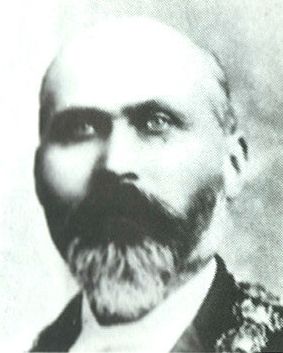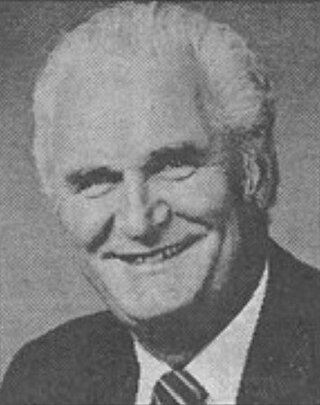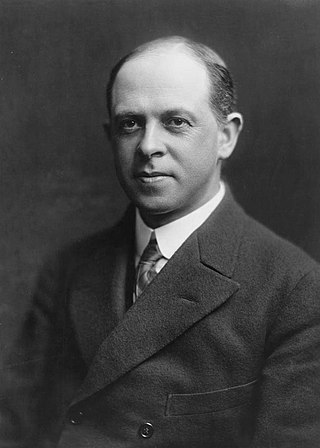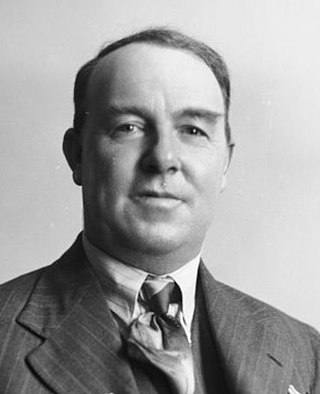| | ||||||||||||||||
| ||||||||||||||||
| Turnout | 29,249 | |||||||||||||||
|---|---|---|---|---|---|---|---|---|---|---|---|---|---|---|---|---|
| ||||||||||||||||
| ||||||||||||||||
The 1933 Christchurch mayoral election was part of the New Zealand local elections held that same year. In 1933, election were held for the Mayor of Christchurch plus 16 councillors and other local government positions.
| | ||||||||||||||||
| ||||||||||||||||
| Turnout | 29,249 | |||||||||||||||
|---|---|---|---|---|---|---|---|---|---|---|---|---|---|---|---|---|
| ||||||||||||||||
| ||||||||||||||||
The 1933 Christchurch mayoral election was part of the New Zealand local elections held that same year. In 1933, election were held for the Mayor of Christchurch plus 16 councillors and other local government positions.
Sitting mayor Dan Sullivan sought re-election for a second term. The Citizens' Association, whose leaders had cooperated well with Sullivan during the term, decided not to put up an opposing candidate "... the Citizens' Association's leading councillors declined to stand against Sullivan and only a somewhat eccentric Independent, Lancelot Walker, opposed him. Walker favoured some grandiose schemes and Sullivan appeared safely conservative in comparison." [1]
The following table gives the election results:
| Party | Candidate | Votes | % | ±% | |
|---|---|---|---|---|---|
| Labour | Dan Sullivan | 18,345 | 62.72 | ||
| Independent | Lancelot Charles Walker | 10,389 | 35.51 | ||
| Informal votes | 515 | 1.76 | |||
| Majority | 7,956 | 27.20 | |||
| Turnout | 29,249 | ||||
The following table gives the overall party strengths and vote distribution.
| Election results by Party [3] | ||||||
|---|---|---|---|---|---|---|
| Party | Candidates | Total votes | Percentage | Averages | Seats won | |
| Labour | 13 | 12,235 | 43.73 | 874 | 7 | |
| Citizens' | 12 | 10,510 | 37.57 | 876 | 6 | |
| Independent | 9 | 3,225 | 11.52 | 358 | 2 | |
| Socialist | 5 | 1,778 | 6.35 | 356 | 1 | |
| Communist | 3 | 117 | 0.41 | 39 | 0 | |
The following table gives the initial candidate preferences totals and sorted by the vote distribution after the 720th (final) count.
| Party | Candidate | Votes | % | ±% | |
|---|---|---|---|---|---|
| Labour | John Archer | 5,494 | 19.63 | ||
| Citizens' | Ernest Andrews | 2,416 | 8.63 | ||
| Citizens' | John Beanland | 2,235 | 7.98 | ||
| Labour | Elizabeth McCombs | 2,171 | 7.76 | ||
| Independent | Francis Thomas Evans | 1,763 | 6.30 | ||
| Socialist | Tommy Armstrong | 1,549 | 5.53 | ||
| Labour | Jack Barnett | 389 | 1.39 | ||
| Labour | Mabel Howard | 845 | 3.02 | ||
| Citizens' | Melville Lyons | 1,098 | 3.92 | ||
| Citizens' | William Hayward | 1,071 | 3.82 | ||
| Citizens' | Thomas Milliken | 1,009 | 3.60 | ||
| Labour | John Mathison | 988 | 3.53 | ||
| Labour | Thomas Henry Butterfield | 373 | 1.33 | ||
| Labour | George Thomas Thurston | 377 | 1.34 | ||
| Citizens' | Thomas Andrews | 396 | 1.41 | ||
| Independent | Henry Thacker | 586 | 2.09 | ||
| Citizens' | Annie Fraer | 1,351 | 4.82 | ||
| Labour | Edward Parlane | 1,087 | 3.88 | ||
| Citizens' | Bill MacGibbon | 942 | 3.36 | ||
| Citizens' | John Nicholas De Feu | 845 | 3.02 | ||
| Independent | George Thomas Baker | 630 | 2.25 | ||
| Citizens' | Richard John Bickerton Dalley | 576 | 2.05 | ||
| Labour | Arthur Edwin Tongue | 571 | 2.04 | ||
| Labour | Robert Macfarlane | 445 | 1.59 | ||
| Citizens' | Kathleen Moore | 320 | 1.14 | ||
| Labour | Alfred John Beauchamp | 303 | 1.08 | ||
| Labour | Reg Stillwell | 281 | 1.00 | ||
| Independent | William James Boyce | 260 | 0.92 | ||
| Citizens' | John James Hurley | 226 | 0.80 | ||
| Socialist | William Berryman | 198 | 0.70 | ||
| Independent | Charles Seymour Trillo | 140 | 0.50 | ||
| Independent | Silas McAlister | 132 | 0.47 | ||
| Socialist | William Henry Bayard | 130 | 0.46 | ||
| Labour | Joseph William Roberts | 118 | 0.42 | ||
| Communist | Robert Macdonald | 101 | 0.36 | ||
| Socialist | Ferguson Hamilton Grant | 75 | 0.26 | ||
| Independent | Edwin Philpott Crowther | 56 | 0.20 | ||
| Independent | Charles John McKay | 52 | 0.18 | ||
| Communist | Richard Henry Ellis | 45 | 0.16 | ||
| Independent | Philip Richard Needham | 29 | 0.10 | ||
| Socialist | Leonard Frank Warburton | 26 | 0.09 | ||
| Communist | Albert John Patterson | 15 | 0.05 | ||

The Mayor of Christchurch is the head of the municipal government of Christchurch, New Zealand, and presides over the Christchurch City Council. The mayor is directly elected using a First Past the Post electoral system. The current mayor, Phil Mauger, was elected in the 2022 mayoral election. The current deputy mayor is Pauline Cotter.

Vicki Susan Buck is a New Zealand politician. She was Mayor of Christchurch for nine years from 1989 to 1998. She retired after three terms, having been very popular. She made a political comeback, standing in the 2013 local elections in the Riccarton-Wigram ward as councillor for Christchurch City Council, being returned with the highest number of votes across all city wards. She subsequently accepted the role of deputy mayor.

Samuel Manning was a brewer and Mayor of Christchurch in 1890.

The 2010 Christchurch mayoral election is part of the 2010 New Zealand local elections. On 9 October 2010, elections were held for the Mayor of Christchurch plus other local government roles. Incumbent Bob Parker was re-elected.

The 2013 Christchurch mayoral election was part of the New Zealand local elections and was won by former MP Lianne Dalziel. The elections were held on 12 October 2013 for the Mayor of Christchurch plus other local government roles.
The 1947 Avon by-election was a by-election held during the 28th New Zealand Parliament in the Christchurch electorate of Avon. The by-election occurred following the death of MP Dan Sullivan and was won by John Mathison.

The 1935 Christchurch City mayoral election was held on 8 May. The incumbent, Dan Sullivan of the Labour Party narrowly beat the conservative candidate, Hugh Acland, a surgeon and World War I veteran. The election attracted nationwide attention, as Christchurch was a Labour-stronghold and due to Acland's widespread popularity, it was regarded as a test whether Labour could potentially win the November 1935 general election.

The Christchurch mayoral by-election in 1936 was triggered by the resignation of the incumbent, Dan Sullivan, who had been appointed cabinet minister after the Labour Party winning the general election in November 1935. The election was won by John Beanland of the Citizens' Association, who narrowly beat the Labour candidate.

The 1989 Wellington City mayoral election was part of the New Zealand local elections held that same year. In 1989, elections were held for the Mayor of Wellington plus other local government positions including twenty-one city councillors. The polling was conducted using the standard first-past-the-post electoral method.

The 1938 Auckland City mayoral election was part of the New Zealand local elections held that same year. In 1938, elections were held for the Mayor of Auckland plus other local government positions including twenty-one city councillors. The polling was conducted using the standard first-past-the-post electoral method.
The 1965 Christchurch mayoral election was part of the New Zealand local elections held that same year. In 1965, election were held for the Mayor of Christchurch plus other local government positions. The polling was conducted using the standard first-past-the-post electoral method.
The 1958 Christchurch mayoral election was held to elect a successor to Robert Macfarlane who resigned as Mayor of Christchurch upon his selection as Speaker of the New Zealand House of Representatives. The polling was conducted using the standard first-past-the-post electoral method.
The 1959 Christchurch mayoral election was part of the New Zealand local elections held that same year. In 1959, election were held for the Mayor of Christchurch plus other local government positions. The polling was conducted using the standard first-past-the-post electoral method.

The 1971 Christchurch mayoral election was part of the New Zealand local elections held that same year. In 1971, elections were held for the Mayor of Christchurch plus other local government positions. The polling was conducted using the standard first-past-the-post electoral method. The incumbent, Ron Guthrey of the Citizens' ticket, was defeated by the Labour Party candidate Neville Pickering.

The 1974 Christchurch mayoral election was part of the New Zealand local elections held that same year. In 1974, election were held for the Mayor of Christchurch plus other local government positions. The polling was conducted using the standard first-past-the-post electoral method. A significant change was the introduction of a ward system, with city councillors elected in five wards.

The 1986 Christchurch mayoral election was part of the New Zealand local elections held that same year. In 1986, election were held for the Mayor of Christchurch plus other local government positions. The polling was conducted using the standard first-past-the-post electoral method.

The 1989 Christchurch mayoral election was part of the New Zealand local elections held that same year. In 1989, election were held for the Mayor of Christchurch plus other local government positions. The polling was conducted using the standard first-past-the-post voting method.

The 1938 Christchurch City mayoral election was held on 11 May. The incumbent, John Beanland of the Citizens' Association, failed to get the nomination by his party and the surgeon Dr. John Guthrie was nominated instead. The Labour Party nominated Robert Macfarlane. Both the Labour and conservative candidate had been members of Christchurch City Council for some years. Macfarlane narrowly won the mayoralty.

The Mayor of Lyttelton was the head of the municipal government of Lyttelton, New Zealand. The position existed from 1868, when the Borough of Lyttelton was formed.
Samuel Rollin Webb was a New Zealand businessman and local politician. He came to New Zealand with his family as a boy and took over his father's fruiterer and fruit grower business as a young man. Politically ambitious, he was mayor of Lyttelton for eight years spanning three periods. He stood for parliament on four occasions between 1881 and 1905 but was unsuccessful.